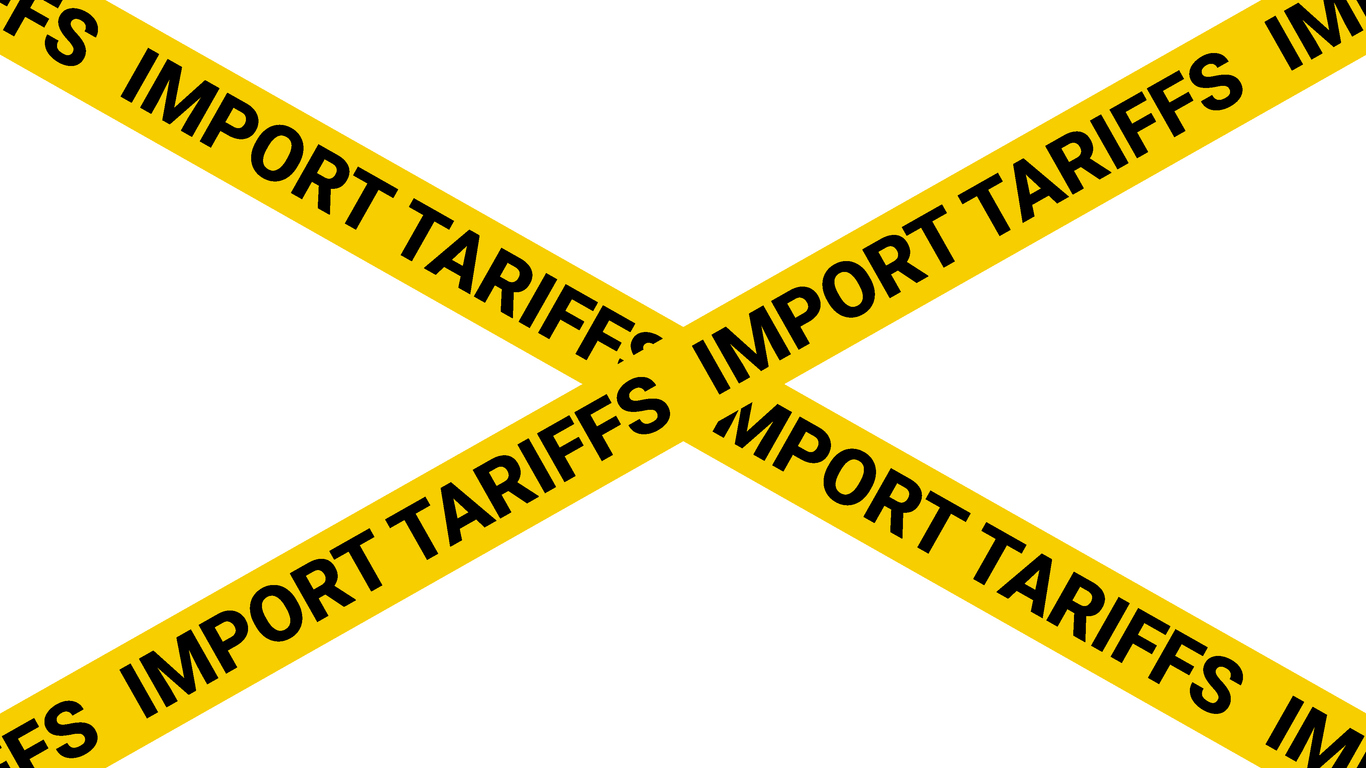How to Establish a Brand Presence in Nigeria: A Comprehensive Guide
Nigeria, the largest economy in Africa with over 220 million people, is an attractive market for international businesses. From fast-moving consumer goods (FMCG) to technology and luxury brands, the country presents vast opportunities. However, establishing a successful brand presence in Nigeria requires careful planning, deep market knowledge, and an understanding of local dynamics.
In this guide, we’ll explore the key steps and strategies for successfully launching and growing a brand in Nigeria, and how companies like Wigmore Trading can support this process.
1. Understand the Nigerian Market
Before entering any new market, comprehensive research is essential. Nigeria is a diverse country with various ethnic groups, languages, and regional preferences. Some of the key factors to consider include:
- Consumer Behavior: Nigerian consumers are becoming more brand-conscious, with a growing appetite for quality, innovative, and aspirational products. However, affordability remains a crucial factor for many, especially for essential goods.
- Regional Differences: Consumer preferences can vary significantly between regions. Lagos, for example, is a cosmopolitan city with a high demand for premium goods, while rural areas may prioritize affordable, practical products.
- Cultural Sensitivity: Understanding local culture and values is key to successful marketing. Brands that align with local tastes and preferences are more likely to gain traction.
Tip: Conduct market research or partner with a local firm to gain insights into the preferences and buying habits of Nigerian consumers.
2. Partner with Local Distributors
One of the most effective ways to establish a brand in Nigeria is by partnering with local distributors. Distributors understand the market landscape, have established relationships with retailers, and can help navigate regulatory and logistical hurdles.
Benefits of partnering with local distributors:
- Access to Retail Networks: Local distributors have connections with supermarkets, wholesalers, and smaller retailers across the country, ensuring that your product reaches a wide audience.
- Logistical Support: Nigeria’s infrastructure, including road networks and supply chains, can be challenging. Local distributors can manage warehousing, transportation, and delivery, ensuring smooth operations.
- Regulatory Compliance: Importing and distributing products in Nigeria comes with regulatory requirements. A trusted distributor like Wigmore Trading ensures that all legal aspects, such as product certification and customs clearance, are handled efficiently.
3. Build a Strong Brand Identity
Nigeria’s youthful population is highly brand-aware, particularly in urban areas like Lagos, Abuja, and Port Harcourt. Building a strong, recognizable brand is critical for long-term success.
- Define Your Value Proposition: What makes your brand unique? Whether it’s quality, innovation, affordability, or luxury, clearly communicate the value your brand offers.
- Cultural Relevance: Adapt your branding and messaging to align with local values, norms, and aspirations. For example, incorporating local languages or references to cultural elements can make your brand more relatable.
- Consistency: Ensure that your brand messaging is consistent across all channels, including digital platforms, traditional advertising, and in-store promotions.
4. Utilize Digital Marketing and Social Media
Nigeria has one of the highest internet penetration rates in Africa, and social media platforms are widely used, especially among younger consumers. To build brand awareness and engage your target audience, digital marketing is essential.
- Social Media Presence: Platforms like Facebook, Instagram, Twitter, and TikTok are popular in Nigeria. Leverage these platforms to run targeted ads, engage with followers, and create a community around your brand.
- Influencer Marketing: Nigerian influencers, particularly in the fashion, tech, and entertainment sectors, have a significant impact on consumer decisions. Collaborating with local influencers can help introduce your brand to a wider audience.
- E-Commerce Integration: With the rise of e-commerce platforms like Jumia and Konga, having an online presence is vital. Make your products available online and ensure seamless integration with digital payment solutions such as mobile money, bank transfers, and card payments.
Tip: Regularly update your social media accounts with engaging content such as behind-the-scenes videos, user-generated content, and promotions tailored to Nigerian audiences.
5. Leverage Traditional Advertising
While digital marketing is crucial, traditional advertising methods remain highly effective in Nigeria. Depending on your target demographic, you may want to explore the following channels:
- Television and Radio: Television remains a dominant media platform in Nigeria, and radio is especially popular in rural areas. Advertising through these mediums can reach a wide audience.
- Billboards and Outdoor Advertising: In major cities like Lagos and Abuja, outdoor advertising, including billboards, posters, and banners, offers great visibility for your brand.
- Print Media: Newspapers and magazines can be useful for targeting specific market segments, especially business professionals and older demographics.
6. Adapt to Local Preferences and Pricing
Price sensitivity is a significant factor for most Nigerian consumers, especially in the FMCG and electronics sectors. Offering the right pricing strategies without compromising on quality can help you penetrate the market more effectively.
- Competitive Pricing: Adjust your pricing to reflect the local economy and competitors. While premium products can command higher prices, for mass-market products, affordability is key.
- Promotions and Discounts: Nigerians love discounts and promotional offers. Offering introductory discounts, bundle deals, and loyalty programs can help attract new customers and build brand loyalty.
- Local Product Variants: Some brands adapt their product offerings to meet local tastes. For instance, introducing flavors or styles that appeal to Nigerian preferences can help differentiate your brand.
7. Navigate Regulatory Requirements
Compliance with local regulations is crucial when establishing a brand in Nigeria. Key requirements include:
- Product Registration: The National Agency for Food and Drug Administration and Control (NAFDAC) regulates the importation of food, drugs, cosmetics, and chemicals. Products must be registered before they can be sold.
- Import Regulations: The Nigerian Customs Service enforces various rules and duties on imported goods. Working with a knowledgeable distributor who handles importation processes is highly beneficial.
- Trademark Protection: Ensure that your brand and logo are properly trademarked in Nigeria to prevent intellectual property issues.
8. Provide Excellent Customer Service
Customer service can make or break a brand in Nigeria. Nigerian consumers value personalized attention and fast responses. Offering excellent customer service, both online and offline, will help build brand trust and loyalty.
- Quick Response Times: Make sure your customer service team responds promptly to inquiries and resolves issues efficiently.
- After-Sales Service: For products like electronics, automobiles, and appliances, after-sales service (such as warranties and repairs) is important in building long-term relationships with customers.
The Role of Wigmore Trading in Brand Establishment
For foreign brands, entering the Nigerian market can be challenging without local support. Wigmore Trading provides a comprehensive suite of services to help brands successfully establish a presence in Nigeria. These services include:
- Import and Export Solutions: Handling the entire importation process, including customs clearance and regulatory compliance, so your products are ready for market.
- Distribution and Logistics: Leveraging an extensive distribution network to ensure your products reach retailers and consumers across Nigeria.
- Market Insights: Providing market research and consulting services to help brands tailor their strategies for the Nigerian market.
- Product Sourcing: For companies looking to source raw materials or products from Nigeria, Wigmore Trading offers expert procurement services.
Conclusion
Establishing a brand presence in Nigeria offers immense opportunities, but it requires careful planning and execution. By understanding the market, partnering with local distributors, utilizing digital and traditional marketing strategies, and ensuring regulatory compliance, foreign brands can thrive in Nigeria’s dynamic consumer landscape.
With the support of experienced companies like Wigmore Trading, navigating the complexities of the Nigerian market becomes a more manageable and rewarding endeavor.








Comments are closed.